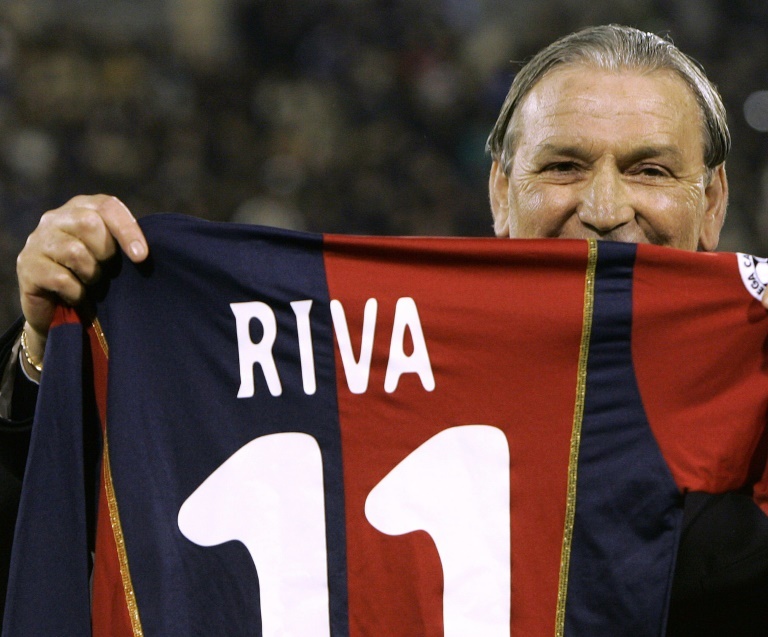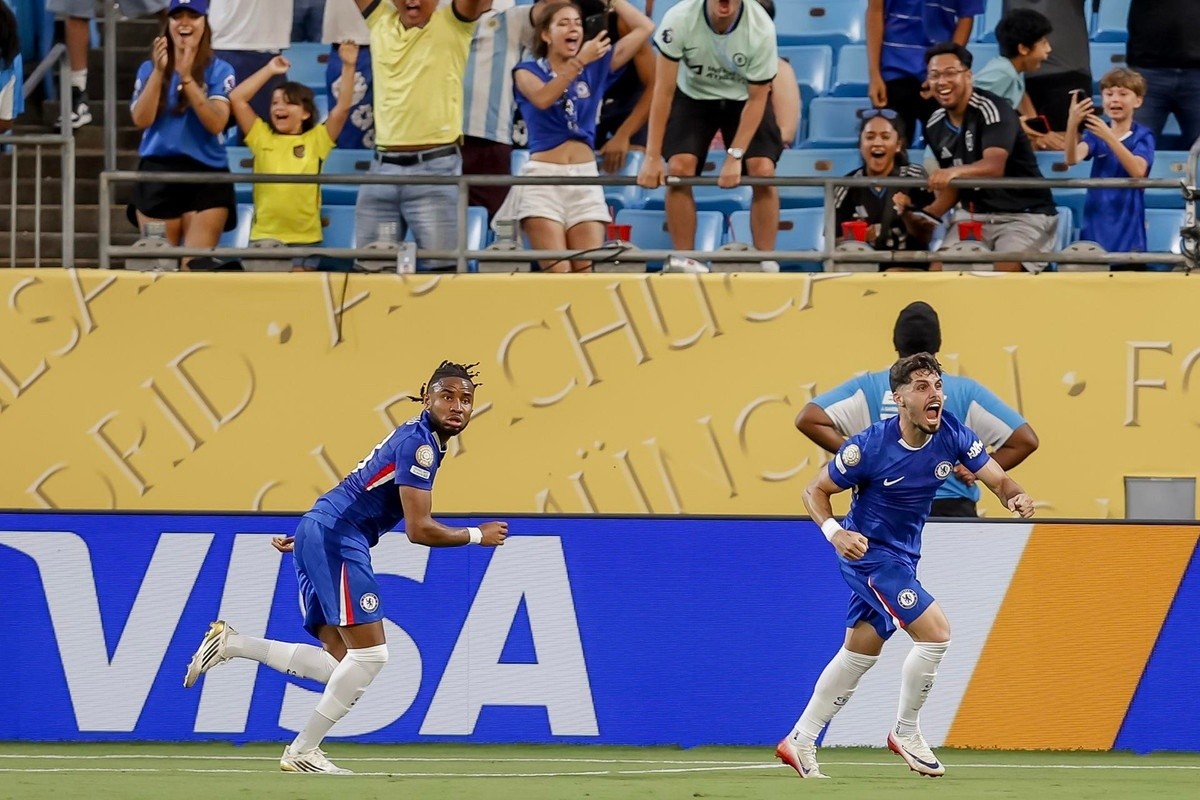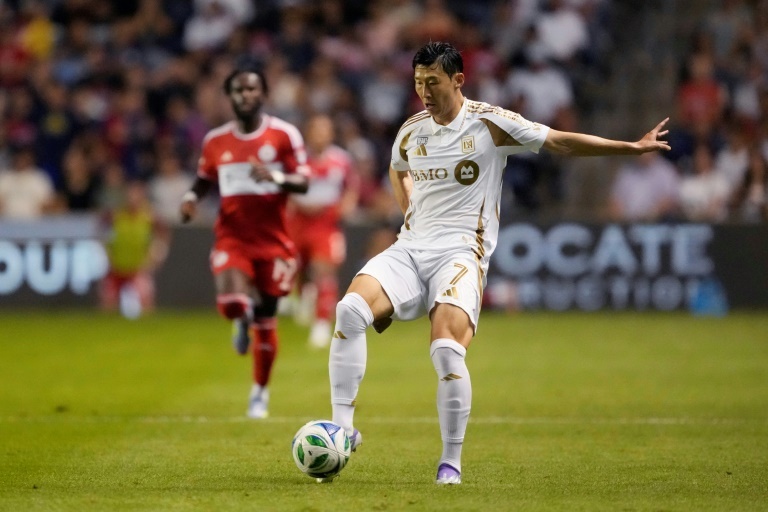Gigi Riva, the thunderclap who stayed true to his Sardinian 'family'

Sardinia was mourning the loss of a sporting deity on Monday after the death of former Italy striker Luigi "Gigi" Riva, who did more than anyone else to put the Italian island on the footballing map.
1 year ago
One of the greatest strikers of all time, Riva, who passed away aged 79, used his uncommonly powerful left foot to fire tiny Cagliari to the Serie A title in 1970, and earned himself the nickname "Roar of Thunder" after renowned journalist Gianni Brera saw him destroy Inter Milan at the San Siro that same year.
Tarcisio Burgnich, a rock hard defender who made over 450 appearances for Inter and was capped for Italy 66 times, was breathless in his description of Riva, saying his presence on the pitch was like a "movement of a people".
Riva stayed with Cagliari almost his entire professional career - despite being persistently courted by Juventus - topping the Serie A goal charts three times between 1967 and 1970 and hitting the net over 200 times for the club.
Taken to Sardinia as a callow teen from lower league side Legnano in 1963, Riva's early life was tough. He was born to a poor family in the small town of Leggiuno, which overlooks Lago Maggiore in Lombardy.
Born in November 1944, Riva lost his father Ugo, who had come through three wars unscathed, to a gruesome factory accident in early 1953, a piece of metal flying from a machine and tearing through his stomach.
Ugo's death forced his wife Edris into work in a textile factory and as a household cleaner, while the young Riva was sent to a severe religious boarding school. Cancer took his mother when he was 16, leaving his elder sister Fausta, who died in March 2020, to see him through the remainder of his teenage years.
Speaking to Italy's public broadcaster 'Rai' in 2010, an emotional Riva reflected on the pain of his deprived, tragic upbringing, saying that he would give up some of his football success "to change my childhood".
In Sardinia he found a family, and the young Riva quickly repaid Cagliari's faith in him, scoring eight goals in his first season as Cagliari finally reached Serie A after 44 years in the wilderness.
His nine goals the following season helped the Sards stay up and made him a totemic figure for not just Cagliari fans but the whole island, which in the 1960s - far from being the oligarchs' holiday hotspot it is today - was a largely forgotten, mysterious place of which mainlanders were deeply suspicious.
"Fisherman would invite me to dinner and they would treat me like one of them. I realised that not just a city, but an entire region was supporting me like a second family. You'd go into the most insignificant rural backwater in the Sard interior and people would have a picture of me in their houses," Riva said.
Riva's attachment to Sardinia remained after his retirement. In 2019 he was named honorary president of Cagliari and he never moved away from the city that provided him with the support his harsh childhood had denied him.
Still Italy's all-time top goalscorer with 35 goals in just 42 appearances, Riva's international career was hampered by two serious injuries, including a broken leg in 1970 which also ended Cagliari's bid for a second straight league title.
Nonetheless he won the 1968 European Championship (scoring in his only appearance, the replay of the final against Yugoslavia) and reached the final of the World Cup two years later, only to have to watch on as Pele's Brazil swept the Azzurri aside.
Between 1990 and 2013 he was a key man in the Italy set-up, hugely respected by the modern crop of players for the seriousness with which he took the national team.
"I remember that as we were all celebrating (the 2006 World Cup), he was extremely upset that there were people on our bus who up until a month previously had left us to rot," said former Italy captain Gianluigi Buffon in 2020. "We have so much in common ... Every time I see him, and it's been a while now, or hear from him it's a thrill."
Tarcisio Burgnich, a rock hard defender who made over 450 appearances for Inter and was capped for Italy 66 times, was breathless in his description of Riva, saying his presence on the pitch was like a "movement of a people".
Riva stayed with Cagliari almost his entire professional career - despite being persistently courted by Juventus - topping the Serie A goal charts three times between 1967 and 1970 and hitting the net over 200 times for the club.
Taken to Sardinia as a callow teen from lower league side Legnano in 1963, Riva's early life was tough. He was born to a poor family in the small town of Leggiuno, which overlooks Lago Maggiore in Lombardy.
Born in November 1944, Riva lost his father Ugo, who had come through three wars unscathed, to a gruesome factory accident in early 1953, a piece of metal flying from a machine and tearing through his stomach.
Ugo's death forced his wife Edris into work in a textile factory and as a household cleaner, while the young Riva was sent to a severe religious boarding school. Cancer took his mother when he was 16, leaving his elder sister Fausta, who died in March 2020, to see him through the remainder of his teenage years.
Speaking to Italy's public broadcaster 'Rai' in 2010, an emotional Riva reflected on the pain of his deprived, tragic upbringing, saying that he would give up some of his football success "to change my childhood".
In Sardinia he found a family, and the young Riva quickly repaid Cagliari's faith in him, scoring eight goals in his first season as Cagliari finally reached Serie A after 44 years in the wilderness.
His nine goals the following season helped the Sards stay up and made him a totemic figure for not just Cagliari fans but the whole island, which in the 1960s - far from being the oligarchs' holiday hotspot it is today - was a largely forgotten, mysterious place of which mainlanders were deeply suspicious.
"Fisherman would invite me to dinner and they would treat me like one of them. I realised that not just a city, but an entire region was supporting me like a second family. You'd go into the most insignificant rural backwater in the Sard interior and people would have a picture of me in their houses," Riva said.
Riva's attachment to Sardinia remained after his retirement. In 2019 he was named honorary president of Cagliari and he never moved away from the city that provided him with the support his harsh childhood had denied him.
Still Italy's all-time top goalscorer with 35 goals in just 42 appearances, Riva's international career was hampered by two serious injuries, including a broken leg in 1970 which also ended Cagliari's bid for a second straight league title.
Nonetheless he won the 1968 European Championship (scoring in his only appearance, the replay of the final against Yugoslavia) and reached the final of the World Cup two years later, only to have to watch on as Pele's Brazil swept the Azzurri aside.
Between 1990 and 2013 he was a key man in the Italy set-up, hugely respected by the modern crop of players for the seriousness with which he took the national team.
"I remember that as we were all celebrating (the 2006 World Cup), he was extremely upset that there were people on our bus who up until a month previously had left us to rot," said former Italy captain Gianluigi Buffon in 2020. "We have so much in common ... Every time I see him, and it's been a while now, or hear from him it's a thrill."







Comments